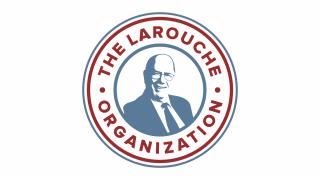Nov. 29—An extraordinary United Nations Security Council meeting called by China was held in New York City on Nov. 29 to discuss the deadly warfare underway in Gaza, and the urgent need to convene an international peace conference to stop the carnage. Chinese Foreign Minister Wang Yi was eloquent and specific, laying out a four-point action program. Nine Arab and/or Muslim foreign ministers backed the call for a conference, and demanded binding, verifiable action from the UN Security Council to impose a ceasefire and a two-state solution—which so far has been sabotaged by U.S. vetoes of any substantive Security Council resolution not to Israeli Prime Minister Netanyahu’s liking.
With the whole world watching, the Israeli ambassador to the UN was defiant, arrogant, and self-righteous in his response, dismissing all calls for a ceasefire as “support for Hitlerite Hamas terrorism.” And the U.S. ambassador, while shedding a few crocodile tears over the massive civilian deaths of Palestinians, continued to provide cover for Israel, rejecting the calls for ceasefire and brushing off demands that the Security Council act. With only a few days left to the so-called “pause,” the full-scale bloodletting and ethnic cleansing is about to start again.
Nor is the Gaza crisis the only one on the front burner, threatening to expand into a regional or world war. The U.S. and NATO continue to use Ukraine as a disposable surrogate in their efforts to dismember Russia. And there is a growing American-inspired drumbeat for Taiwan’s independence, which Chinese authorities have responded to bluntly, saying “Taiwan independence means war.”
In fact, no crisis is on the strategic back burner at this point: The systemic breakdown of the entire trans-Atlantic system has brought all of these crises to the boiling point, front burner.
What, then, is to be done?
Schiller Institute founder Helga Zepp-LaRouche addressed that question in depth in the course of her weekly Dialogue webcast on Nov. 29.
“China has made a proposal to conduct an international Middle East peace conference, and I think that that is the only way to approach the situation,” she stated. “Either you continue to play geopolitics and you divide nations and you distribute tensions and war, or you come to a new paradigm. Our point has been that we are promoting the idea of a comprehensive development plan for the entire region. And such a comprehensive peace plan for the Middle East would then be, maybe the beginning of a new development and security architecture for the whole planet, which would take into account the security and development needs of all countries, because I think that is urgently needed to get out of this present geopolitical confrontation.”
Asked what she thought about approaches such as imposing sanctions on Israel, Zepp-LaRouche responded: "I have a slightly different approach. That does not mean you forgive the unforgivable crimes that have been committed, but it is the absolute experience of the Peace of Westphalia, which ended 150 years of religious warfare in Europe, that after losing almost two-thirds of Europe at the time, or large parts of Europe, and most people were dead, they came to the conclusion that you have to introduce something completely different.
“The Peace of Westphalia developed the principles that, for the sake of peace, you have to forgive the crimes on the one side and the other side. That doesn’t mean you forget them; it doesn’t mean you do not uphold the memory and draw the conclusion for the future. But you have to put a line where you forgive. Because otherwise, if you keep counting, ‘this side did this, and that side did that,’ it will just continue the cycle of violence…
“It does require that we get an understanding among all the nations and all the forces in the world, that we need to move to a completely different level, we need to move to a new paradigm of international relations, where we put the one humanity first, and put all national interests in cohesion with that one humanity. That is a sort of spiritual jump, a mental jump to a completely new level, and it’s based on the thinking of Nicholas of Cusa and the Coincidence of Opposites, the coincidentia oppositorum, which was a method of thinking he developed, which I think informed the Peace of Westphalia, because it enabled the participants, despite all the war crimes on both sides, to move to a new level and establish that their foreign policy from now on had to be based on the interest of the other, meaning all others; and that foreign policy had to be built on love.
“I know this may sound utopian to some people, because obviously they argue that the military-industrial complex will not in our day ever come to the level of love in foreign policy. But if we get a mass movement for peace, and a completely different kind of international cooperation among all nations, well, then, also the power of the military-industrial complex will not be around forever.”
Zepp-LaRouche concluded: "You have to introduce a concept which overcomes all the conflicts on a regional level, and that has to proceed from the one humanity. I think that the only government which I have heard talking about going in this direction is, indeed, China, because Xi Jinping always talks about the ‘shared future of humanity,’ meaning that we only have one future. And I have heard Putin saying similar things, and some leaders from the Global South countries are also moving in this direction.
“I emphatically think that that is the only level on which this problem can be solved.”






